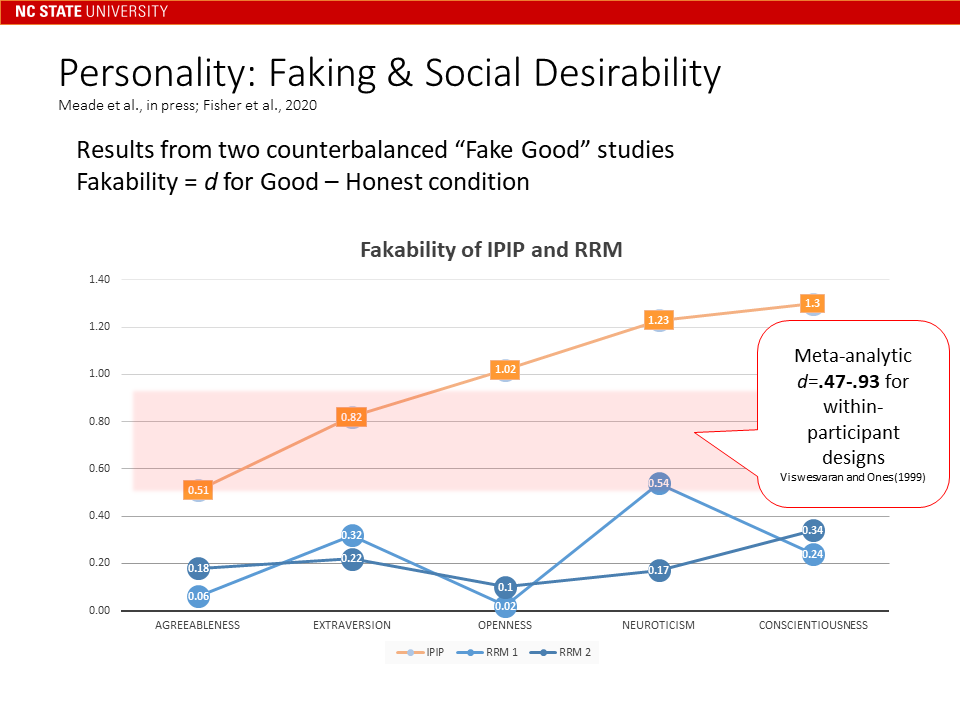RRM: Overview and Faking
Below is an excerpt from a presentation delivered as part of the 2020 annual meeting of the Society for Industrial/Organizational Psychology (SIOP). This presentation provides a look at the RRM along with some of the results presented in the Meade et al., 2020 Organizational Research Methods paper.
Below are the results from Meade et al., 2020 and also Fisher et al, 2020 who independently conducted a faking study using the RRM. Meade et al. asked participants to complete a traditional survey-based personality assessment (the IPIP) along with the RRM under two counter-balanced conditions: Respond honestly instructions and respond as though you were a job applicant (“fake-good”) instructions. Faking was defined as the standardized difference in mean responses for the Fake Good and Honest conditions. Fisher et al. replicated these results independently. In both studies, the RRM had less faking than was found on the IPIP and less faking than has been reported in meta-analyses.
Click here to learn how to use the RRM administration platform.

